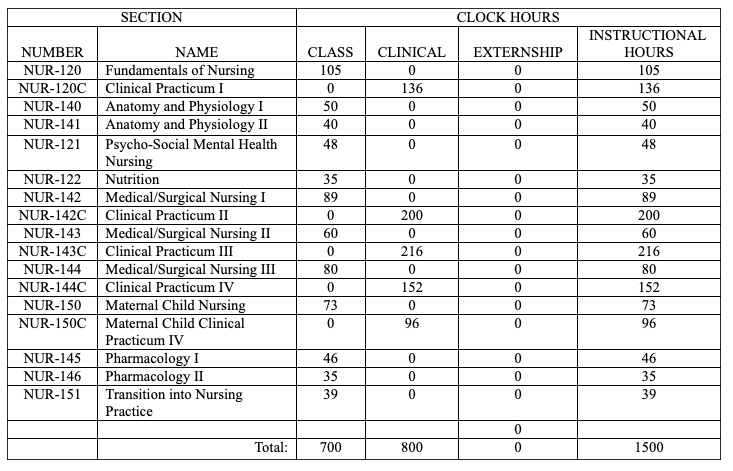Practical Nursing
12 Months – Total Clock Hours: 1,500
FY2025 / 2026 Tuition: $17,618
Start date: 1/6/2026
FY2026 / 2027 Tuition: $18,147
Start date: 8/3/2026 & 1/6/2027
Admission Requirements
Pre-Entrance Exam, Pre-Entrance Exam Fee, Application for Admission, Application Fee, Enrollment Agreement, Criminal Record Check, and Child Abuse Clearance, and either a High School Diploma or GED.
Program Overview
The Full-Time, Practical Nursing Program is a one (1) year education program approved by the Pennsylvania Department of Education and the Pennsylvania State Board of Nursing. Theory and clinical experiences are interfaced to prepare students for the state licensure examination and a career in the healthcare field.
Maximum # of Students Per Class: 36 (Instructor/Student Ratio is in concordance with The PA State Board of Nursing Requirements)
The Instructor to Student ratio maintained is 1 teacher per maximum 12 students.
Program starts in January and August. Please check with CPI Admissions and review the Program Enrollment Agreement for specific start dates.
Entry _Level Career Opportunities
- Hospital Setting
- Long Term Care
- Rehabilitation Centers
- Correctional Facilities
- Primary Care Clinics
- Assisted Living
- Mental Health Settings
- Home Health Care
Courses In This Program Include:

Course Descriptions
NUR-120 – Fundamentals of Nursing
Fundamentals of Nursing includes a theoretical approach to the history of nursing, legal and ethical aspects in practical nursing and the health care delivery system, with emphasis on the role of the practical nurse. The nursing process is introduced and utilized to assess, plan, implement and evaluate care. The nursing process is also utilized to write nursing care plans. The teaching of basic health practices to patients and families is also introduced in this course. Basic nursing skills are taught in theory, practiced in the laboratory, and implemented in the clinical setting. (105 Lecture Hours – 136 Lab Hours)
NUR-121 – Psycho-Social Mental Health Nursing
Psycho-Social Mental Health Nursing is an introduction to Mental Health. This course is designed to introduce the concept of human needs, as well as patient behaviors and nurse-patient interactions. The theories of personality development are explored. This course also includes the communication process and selected information regarding the aging process and death and dying. The spiritual aspect is discussed and the nurse’s role in assessment of spiritual needs and care is defined. Universal concepts of normal human behavior provide a basis for understanding mental health, as well as alterations of mental health. (48 Lecture Hours – 0 Lab Hours)
NUR-140 – Anatomy and Physiology I
Anatomy and Physiology introduces basic principles of chemistry and physics. This course introduces the basic concepts of the structure and function of the body. The systems covered are integumentary, digestive, cardiovascular, excretory, and respiratory. In addition, this course offers an introduction to the growth, destruction, infection, and control of micro-organisms.
This unit is designed to increase student awareness of micro-organism and their part in the maintenance of health.
(50 Lecture Hours – 0 Lab Hours)
NUR-122 – Nutrition in Nursing Practice
Nutrition in Nursing Practice introduces the principles of nutrition, as well as nutrition in health promotion and clinical nursing practice. (35 Lecture Hours – 0 Lab Hours)
NUR-141 – Anatomy and Physiology II
Anatomy and Physiology II is a continuation of Anatomy and Physiology I. The presentation of the remaining systems, such as nervous, sensory, musculoskeletal, endocrine, immunology, reproduction, plus the basics of acid/base balance are designed to enhance the students’ learning of Medical/Surgical Nursing courses offered in this level. (40 Lecture Hours – 0 Lab Hours)
NUR-142 – Medical/Surgical Nursing I
Medical-Surgical Nursing presents the application of the nursing process to medical/surgical nursing. This course includes theory and experience in giving safe and effective care to adult patients with a variety of medical and surgical disorders. Included is an independent learning program of mathematics required for medication calculations. (89 Lecture Hours – 200 Lab Hours)
NUR-145 –Pharmacology I
Pharmacology addresses the practical nurse’s responsibility, the legal implications, and quality assurance in the administration of medications. Dosage calculation and medication administration is simulated in the laboratory setting. The course includes the administration of medications to selected patients in the clinical setting under close supervision. Patient instruction of medication actions and side effects is emphasized.
(46 Lecture Hours – 0 Lab Hours)
NUR-146 –Pharmacology II
Pharmacology II provides a background in pharmacodynamics of common medications according to body systems. This course provides additional experience in the administration of medications. (35 Lecture Hours – 0 Lab Hours)
NUR-143 – Medical/Surgical Nursing II
Medical/Surgical Nursing II presents the application of the nursing process to medical/surgical nursing. The course includes the theory necessary to provide safe and effective care to adult patients with a variety of medical and surgical disorders. The student will utilize the nursing process to assist the patient meet biopsychosocial needs. This course also includes the nursing care of patients with disorders of the reproductive, endocrine, sensory, gastrointestinal, and integumentary systems, as well as allergic conditions. Health maintenance of adult patients is addressed. Preventive as well as restorative care is emphasized. (60 Lecture Hours – 216 Lab Hours)
NUR-150 – Maternal Child Nursing
Maternal Child Nursing presents the application of the nursing process to maternal and child nursing. The course presents normal neonatal development and the normal processes of pregnancy, labor, and delivery and postpartum.
(73 Lecture Hours – 96 Lab Hours)
Nur-144 Medical/Surgical Nursing III
Medical/Surgical Nursing III provides theoretical and clinical experiences involving disorders of the cardiovascular, respiratory, and nervous system. A unit on cancer addresses treatment modalities as well as palliative care and hospice. Course content is presented through lecture, demonstration, lab experiences, case studies, online discussion, research, and presentations. (80 Lecture Hours- 152 Lab Hours)
Nur- 151 Transition into Nursing Practice
This course is designed to prepare the student for practice following graduation. Content includes current healthcare issues and trends, leadership, licensure, and transition into nursing practice. (39 Lecture Hours- 8 Lab hours)
